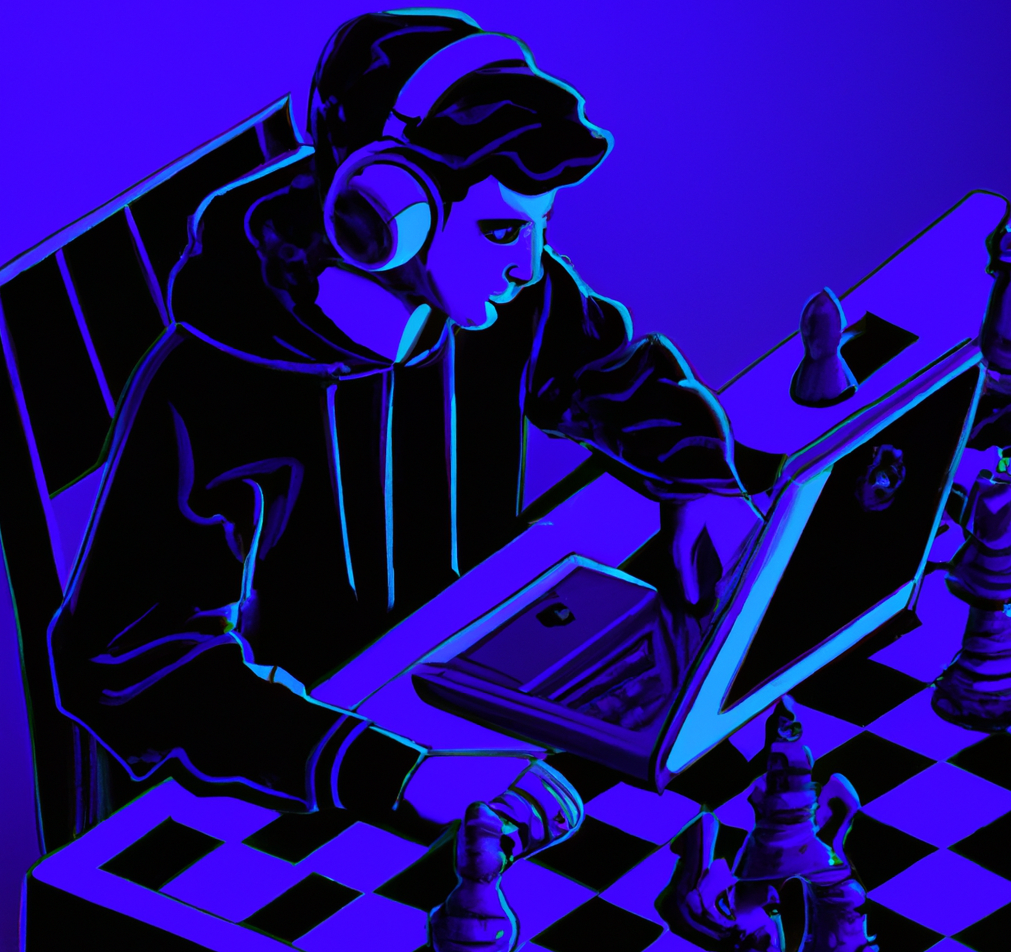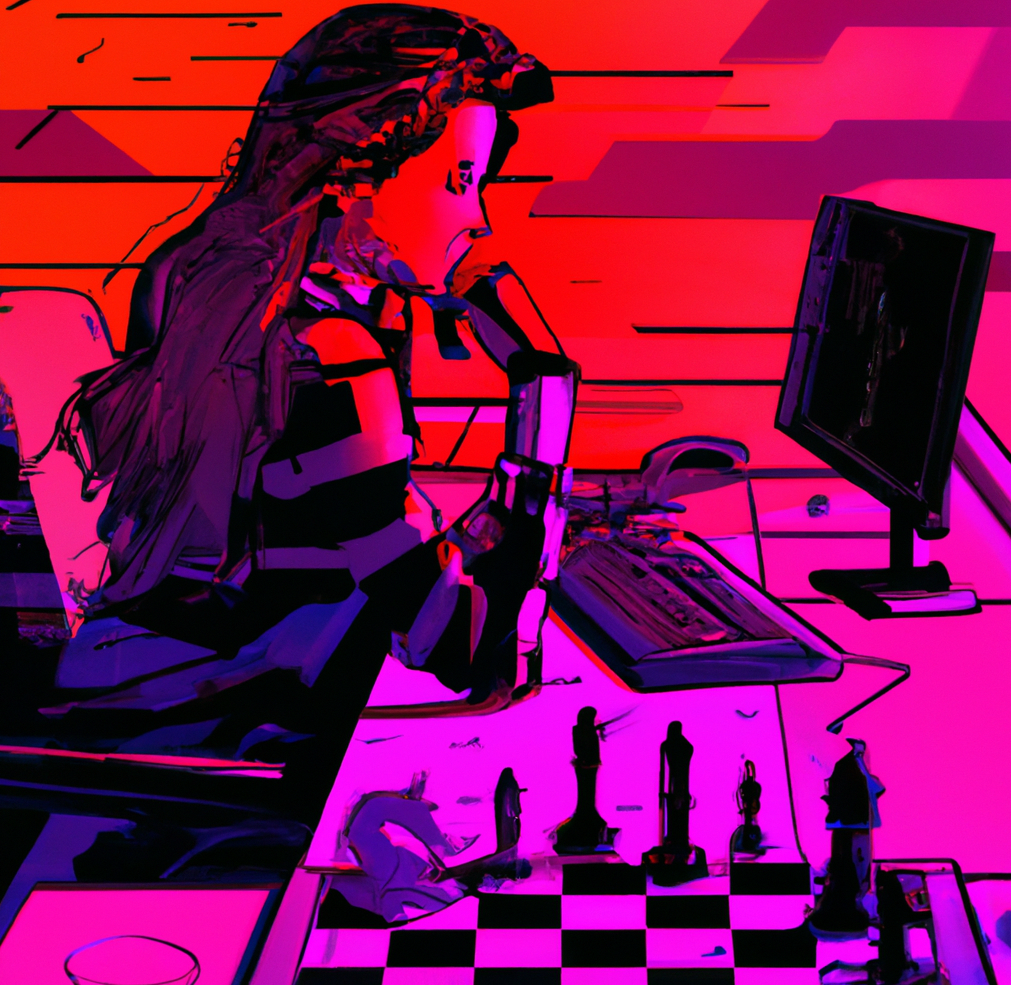How To Get Better at Bullet Chess
Pressure, adrenaline, mouse-slips and the eventual rage after losing: Who doesn’t love a match of bullet chess? But why is it then, that improving at bullet chess seems so much harder than getting better at rapid and even blitz chess?
We’re here to find out together. And of course, we’ll teach you how to actually get better at bullet (and give some dirty tips & tricks for winning more bullet games). Let’s dive in.

What is Bullet Chess?
Bullet chess is a fast-paced variation of chess that has recently – with the rise of online chess – gained popularity among players of all skill levels. In bullet chess, each player has a (very) limited amount of time to make their moves – typically one or two minutes per game. This high-speed format can be exciting and challenging, but it has its drawbacks as well. Some even go as far as saying it isn’t real chess anymore. But why?
Because the time constraints in bullet chess are so severe, the game is often considered to be more about quick reflexes (and mouse-speed if you’re playing online), pattern recognition and sheer luck than about strategic thinking and planning, which are key aspects of traditional chess.
To me, bullet chess is a completely different beast to the classical time format. While I do enjoy it from time to time, I find myself annoyed and angry at myself more than I like to admit when playing bullet.
How to Improve at Bullet Chess
Okay, but enough beating around the bush. You came here to improve your bullet chess. So, let me help you to level up your bullet rating with 5 key tips I discovered.
Practice Regularly
I know I know, this is old advice no one likes to hear. But it is the truth. To get better at bullet, you have to practice bullet. Practicing regularly helps to improve your pattern recognition skills, which are critical when you have very little time to think about each move. By repeatedly studying and playing through different chess positions, you can train your brain to quickly recognize common patterns and make better decisions on the fly.
Pro Tip: Another important aspect to train regularly is your accuracy with the mouse. We recommend an aim trainer for that, such as the one offered by Human Benchmark.
Also: a huge part of improving at bullet chess is being able to handle pressure. The more you practice, the more comfortable you’ll become with the fast-paced nature of the game, and the better you’ll be able to handle the time pressure.
Get a Good Gaming Mouse for Bullet
One of the key advantages of a good gaming mouse is its speed. Many gaming mice are designed to be extremely fast and responsive, allowing players to move their pieces quickly and confidently. This can be especially useful in bullet chess, where every second counts. By using a fast gaming mouse, you can make moves quickly and efficiently, without having to worry about the mouse slowing you down or causing mistakes (aka mouseslips). Also, make sure to have a good mouse pad that is clean and large enough for tracking.
Traps Are Your Friend (in Bullet Only!)
While we generally don’t advocate using cheap opening traps, they do have their place in the bullet chess world. Besides it being good to avoid falling victim to one, you’ll have a much higher chance of trapping your opponent in a bullet game, rather than a classical chess match. So yes, go ahead and learn some opening traps to use, but make sure they’re not ones where you sacrifice half your pieces for the off-chance of a quick checkmate.
Be Comfortable in Common Openings
Some people will tell you that the openings don’t matter in bullet chess. I wholeheartedly disagree and think this is bad advice.
While it is true that you can often turn around games in bullet after butchering the opening, it is not all about the position. We all know how important time management is in fast-paced chess. You don’t want to spend 15 of your 60 seconds calculating on the 4th move to avoid falling into a common opening trap. Those 15 seconds are game-deciding!
In bullet chess, it’s important to have a solid opening repertoire that you can rely on to get off to a good start. Take some time to study common openings and familiarize yourself with the basic principles and strategies involved.
Learn with Fast-Paced Puzzles
Playing fast-paced puzzle games is a surefire way to get better at bullet chess, because it helps to develop your pattern recognition skills, quick reflexes, and overall chess knowledge. Fast-paced puzzles are chess positions that are designed to be solved quickly, often in a matter of seconds. By repeatedly solving these puzzles, you can train your brain to quickly recognize common patterns and make better deicisions when in time trouble. This is an essential skill in bullet chess, where you have very little time to think about each move. I like training with puzzles, because it takes away a bit from the competitive nature of playing against a real opponent when you only fight to better your last attempt.
My personal favorite to use is Puzzle Storm on lichess, but feel free to use the Chess.com “alternative” Puzzle Rush – while technically not the same, the idea is similar: solve as many puzzles as quickly as possible.
Cheap Tricks To Win That One Dirty Bullet Game

The chaotic and unpredictable environment of bullet chess allows us to disregard some standard principles of chess and play unconvential moves that might not work in classical time formats.
Checking to Flag Your Opponent
With time being a central component of bullet games, often times you can win a game in a lost position by running down your enemies clock. This is called “flagging”. While it is considered to be a beat of a cheap and dirty trick, it does wonders for winning in a otherwise lost position. So use with caution if you’re playing against a dear friend.
Traps
As mentioned above, traps can be a great way to get a quick win over your bullet opponent. If in doubt, set up that trap and hope your opponent crumbles under the time pressure and falls right into it. Obviously this is a high-risk approach, but that is exactly what you need in bullet chess.
Save Time With Safe Moves
On a similar note to running down your opponents clock, you want to preserve your own time as best as possible. Often times we feel the urge to spend time to find the perfect move. We can’t afford that luxury in quick games! Sometimes it’s better to simply play a safe move that will stop your clock and start your opponent’s one.
So, if you do find yourself running low on time, consider making safe moves that will help you to conserve time.
Why is it so Hard to Get Better at Bullet Chess?
If you’re a regular bullet player, you probably noticed by now that improving at bullet chess can be a difficult and challenging task that seems almost impossible at times (especially compared to classical chess).
The first reason for that is the lack of analysis. Normally, an important part of getting better at chess is looking back at your games and analysing mistakes. In bullet chess, it doesn’t make a whole lot of sense to analyse games. We expect there to be a lot of mistakes due to the lack of calculation. That means there is no easy and objective way to see where you went wrong.
Of course, mouseslips and other such mistakes play a big role as well. While you can train your accuracy to some extend, mouseslips happen on all levels of play, meaning they are pretty much inevitable:
(And this didn’t even happen in a bullet game, so don’t feel too bad when you blunder next time due to a mouse slip.
And lastly, bullet – more than classical time formats – do have some components of luck. Obviously, you can’t improve your luck (at least I wouldn’t know how), so we’re stuck with the hard task of actually improving at bullet.
Conclusion: Keep At It!
Improving at bullet chess can be a challenging and demanding task. The time constraints, high level of competition, and fast-paced nature of the game can make it difficult for players to develop and hone their skills. However, with practice and persistence, it is possible for players to improve and become more competitive in bullet chess.
So I urge you to keep practising bullet if your main goal is to improve. But remember: If bullet chess makes you feel stressed and angry all the time, it might be better to stick with longer time formats (or check out some ways to deal with chess rage).
Chess Improvement Articles To Make You a Better Player
We have a ton of useful tips & tricks here on Chessily to make you a better chess player. You can browse through all of them here:
- How to Overcome Chess Plateaus: Tips for Breaking Through
- The Most Common Chess Mistakes and How to Avoid Them
- Are Puzzles Useful For Chess Improvement?
- Why Am I So Bad at Chess? And What To Do About It
- How To Stop Blundering in Chess
- How To Improve at Rapid Chess
- How to Get Better at Bullet Chess
- How To Get To 1500 Rating in Chess: A Practical Guide

